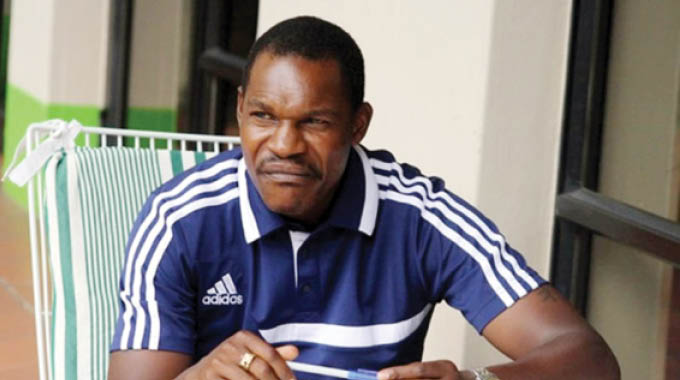Ministry to standardise admin courses
Harare Bureau
AS the Ministry of Sport and Recreation continues with its efforts to set a foundation for a turnaround strategy, they have set their eyes on the training and capacity development so that they unlock the value of sport.
Sport and Recreation Minister, Makhosini Hlongwane, who has been touring various national associations since coming into office last year, yesterday went a step further and met with all the associations representatives at the National Sports Stadium to share the Ministry’s vision, policy and strategic direction.
“The level of development in sport and recreation is directly correlated to the skills and technical and administrative competences endowed within the system.
“Whereas there are clearly defined sport specific pathways to develop sports coaches and technical officials within the ambit of international federations, it’s noticeable that the same doesn’t obtain for administrators and leaders at the helm of those same sport codes.
“Due to these glaring shortcomings, anyone within a sport association structure can become a president, chairperson, secretary-general without relevant expertise and experience critical for the discharge of the concomitant responsibilities.
“The Ministry of Sport and Recreation, in collaboration with institutions of higher learning, will standardise sport administration courses which will be offered through colleges, institutes and universities.
“As a matter of policy, it will actively promote the development of Zimbabwean sport practitioners to positions of influence in regional, continental and international federations and other similar structures.
“The Ministry of Sport and Recreation and SRC will craft minimum standards for potential candidates into national sport associations’ executive boards.
“The Ministry of Sport and Recreation, in collaboration with the SRC, will encourage national associations to establish and enforce minimum coaching standards or requirements to be met at each level of their development continuum,” said Hlongwane.
Hlongwane said the underlying vision for sport in Zimbabwe is to be “an active, empowered and excelling sporting nation.”
And the ministry will be presenting the draft National Sport and Recreation Policy to Cabinet next month.
“I’m happy to note that the process culminating in the consummation of this vision was participatory as most of you were involved in the crafting of the draft national sport and recreation policy. I’m pleased to let you know that we’re now on the home stretch as far as this project is concerned.
“The draft policy document is now being processed for tabling before cabinet next month,” said Hlongwane.
He also touched on schools sport, college, and community sport as the ministry hopes to curb the leakages that have seen most of the talent wasting away when some of the athletes graduate from schools and colleges.
Hlongwane spoke on the focal areas to anchor the transformation of the sport and recreation sector including governance.
“The growth and development of sport and recreation are premised on the existence of vibrant club, league and sport association structures.
“These structures should be formally registered as legal entities through their constitutions or articles of association and they are expected to adhere to the principles of good corporate governance, ethical conduct, transparency, accountability and must be sensitive and responsive to the needs and aspirations of their membership and the general public,” said Hlongwane.
The ministry is also looking at establishing a national anti-doping agency to carry out awareness and educational activities on the consequences of the malpractice of using banned substances to enhance sport performance.
Hlongwane said there is potential for sport to reach great heights if all stakeholders come together.
Judo Association of Zimbabwe president, Debbie Jeans, said while sport needs funding, there is need to go back to the basics in training athletes as she made a contribution at the meeting.
“So one of the things is if we’re going to have Olympians it’s a very far shot because every Olympic medal costs so many millions of US dollars. But one of the things where everyone can make a difference for very little input is in area of the Cuban model. And the Cuban system is that the Ministry of Sport, the Ministry of Health and Ministry of Education work together.
“I believe in Zimbabwe we’ve amazing talent but if you don’t have the coaching system for them (athletes) to go through, they’re never going to do it.
“And you don’t need fantastic facilities, you need very good coaches who can train with very little equipment and make sure it’s an athlete first, then you do your sport, that’s the new thing in sport medicine now,” said Jeans.











Comments